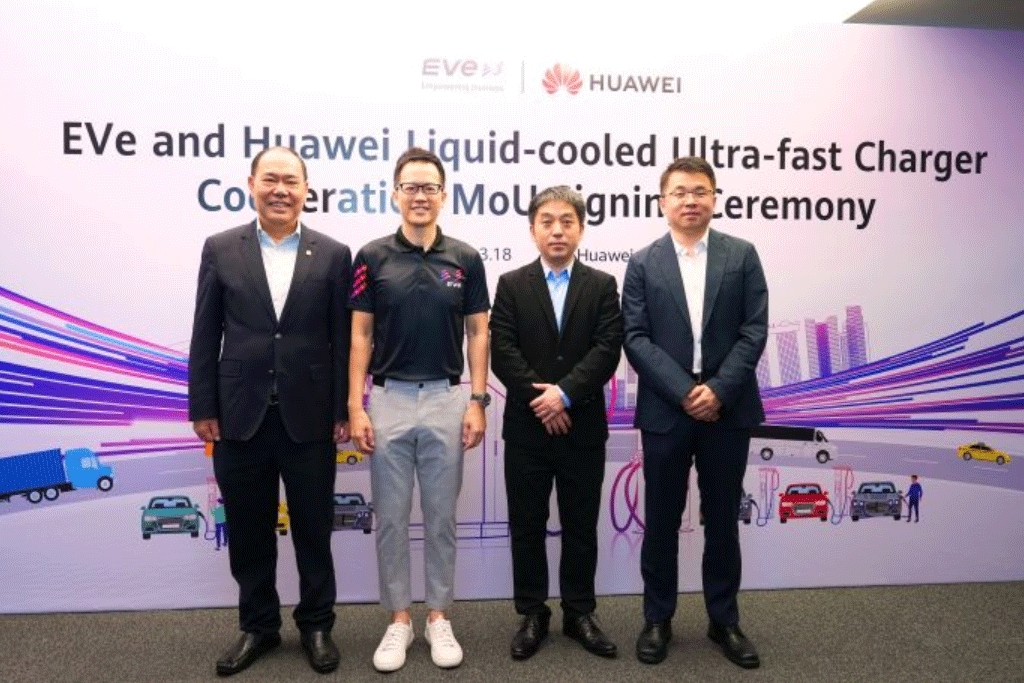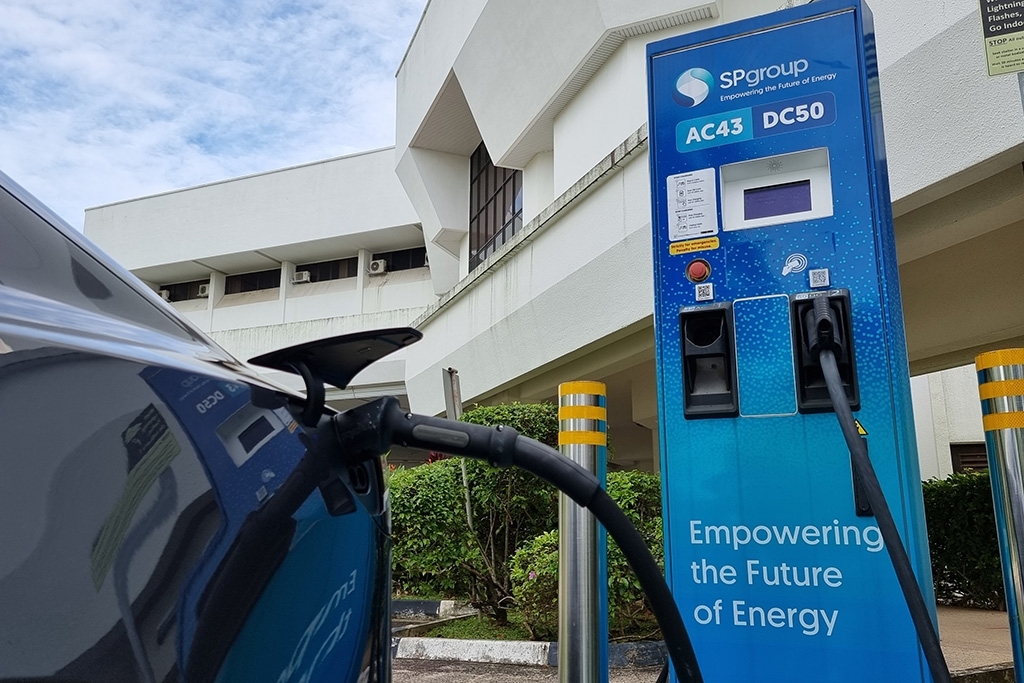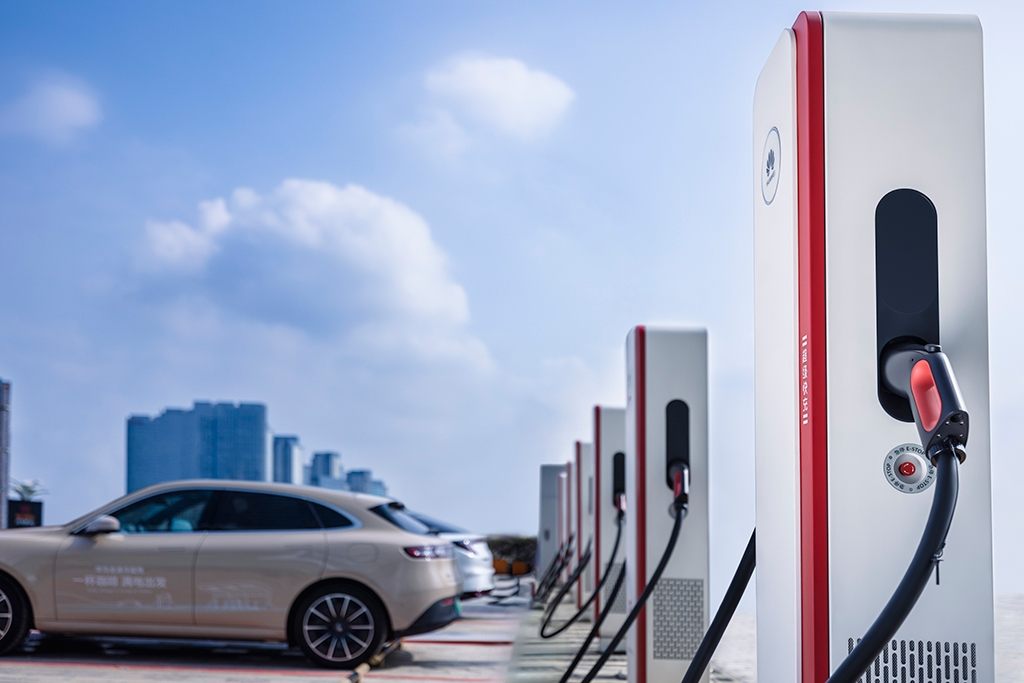Huawei's ultra-fast EV chargers to debut in SG by end-2024
19 Mar 2024|1,749 views
By the end of 2024, ultra-fast electric vehicle (EV) chargers are set to revolutionise the local EV landscape. These chargers are said to be capable of taking an EV up to full charge in just 30 minutes.
EV-electric (EVe), a subsidiary of the Land Transport Authority (LTA), signed an agreement with Huawei yesterday (18 March 2024), to bring in such ultra-fast chargers. The Chinese technology giant claims that these chargers will be the "fastest public charger in Southeast Asia".
The ultra-fast chargers will serve high mileage EV users, such as taxis and delivery drivers, well as they will need to recharge their EVs more frequently and expeditiously than private EV drivers.
Currently, standard charging points installed in Housing Board car parks can take up to eight hours to charge up an EV. The ultra-fast chargers, on the other hand, have a higher maximum charging speed. For instance, these chargers are said to have a charging rate of approximately one kilometre per second.
EVe expects models arriving in the next few years to be optimised for what the current generation EVs can handle to maximise charging capabilities. The chargers that will be launched in Singapore will be rated at 480 kilowatts (kW) instead of the 600kW version being used in China. Each charger will have two charging nozzles to serve two vehicles at a time.
This ensures compliance with the prevailing ceiling under the latest national EV charging standard in Singapore, which was raised from 200kW to 500kW in 2022.
According to Huawei, the ultra-fast charger is able to deliver electricity to the EV batteries so quickly because it uses liquid cooling. This method can lower the operating temperature of a charger more effectively than the fans that are typically used on most EV chargers. High temperatures can slow down the speed with which a battery can be charged.
Across Singapore, EVe takes charge of the roll-out of the public EV charging network. There are currently five major operators in total covering different parts of Singapore including the likes of Charge+, CDG ENGIE, Shell, SP Group, and ChargeEco.
EVe said that while discussions on how many ultra-fast chargers will be brought in alongside where the chargers will be located, "one to two chargers" should be ready by the end of 2024. It added that sites selected for the chargers must have sufficient electricity to power them, and at least one of the locations should be able to accommodate bigger EVs like minibuses.
When Huawei unveiled its ultra-fast charger last year, it had said the charger was able to supply sufficient charge within five minutes, which would give an EV an additional 200km of operating range.
As of March 2024, Singapore has 2,984 EV chargers that can be publicly accessed.
Mr. Derek Tan, Chief Executive Officer of EVe, said: "At almost 10x the speed of conventional fast chargers, we can help users save even more time and at some point, hopefully bring the charging experience closer to that of petrol kiosks."
By the end of 2024, ultra-fast electric vehicle (EV) chargers are set to revolutionise the local EV landscape. These chargers are said to be capable of taking an EV up to full charge in just 30 minutes.
EV-electric (EVe), a subsidiary of the Land Transport Authority (LTA), signed an agreement with Huawei yesterday (18 March 2024), to bring in such ultra-fast chargers. The Chinese technology giant claims that these chargers will be the "fastest public charger in Southeast Asia".
The ultra-fast chargers will serve high mileage EV users, such as taxis and delivery drivers, well as they will need to recharge their EVs more frequently and expeditiously than private EV drivers.
Currently, standard charging points installed in Housing Board car parks can take up to eight hours to charge up an EV. The ultra-fast chargers, on the other hand, have a higher maximum charging speed. For instance, these chargers are said to have a charging rate of approximately one kilometre per second.
EVe expects models arriving in the next few years to be optimised for what the current generation EVs can handle to maximise charging capabilities. The chargers that will be launched in Singapore will be rated at 480 kilowatts (kW) instead of the 600kW version being used in China. Each charger will have two charging nozzles to serve two vehicles at a time.
This ensures compliance with the prevailing ceiling under the latest national EV charging standard in Singapore, which was raised from 200kW to 500kW in 2022.
According to Huawei, the ultra-fast charger is able to deliver electricity to the EV batteries so quickly because it uses liquid cooling. This method can lower the operating temperature of a charger more effectively than the fans that are typically used on most EV chargers. High temperatures can slow down the speed with which a battery can be charged.
Across Singapore, EVe takes charge of the roll-out of the public EV charging network. There are currently five major operators in total covering different parts of Singapore including the likes of Charge+, CDG ENGIE, Shell, SP Group, and ChargeEco.
EVe said that while discussions on how many ultra-fast chargers will be brought in alongside where the chargers will be located, "one to two chargers" should be ready by the end of 2024. It added that sites selected for the chargers must have sufficient electricity to power them, and at least one of the locations should be able to accommodate bigger EVs like minibuses.
When Huawei unveiled its ultra-fast charger last year, it had said the charger was able to supply sufficient charge within five minutes, which would give an EV an additional 200km of operating range.
As of March 2024, Singapore has 2,984 EV chargers that can be publicly accessed.
Mr. Derek Tan, Chief Executive Officer of EVe, said: "At almost 10x the speed of conventional fast chargers, we can help users save even more time and at some point, hopefully bring the charging experience closer to that of petrol kiosks."
Latest COE Prices
January 2026 | 1st BIDDING
NEXT TENDER: 21 Jan 2026
CAT A$102,009
CAT B$119,100
CAT C$75,503
CAT E$122,000
View Full Results Thank You For Your Subscription.


























